Can Pasta Expire?
Pasta has emerged as one of the most loved dishes in the world regardless of your recipe. You must be wondering- does pasta go bad?
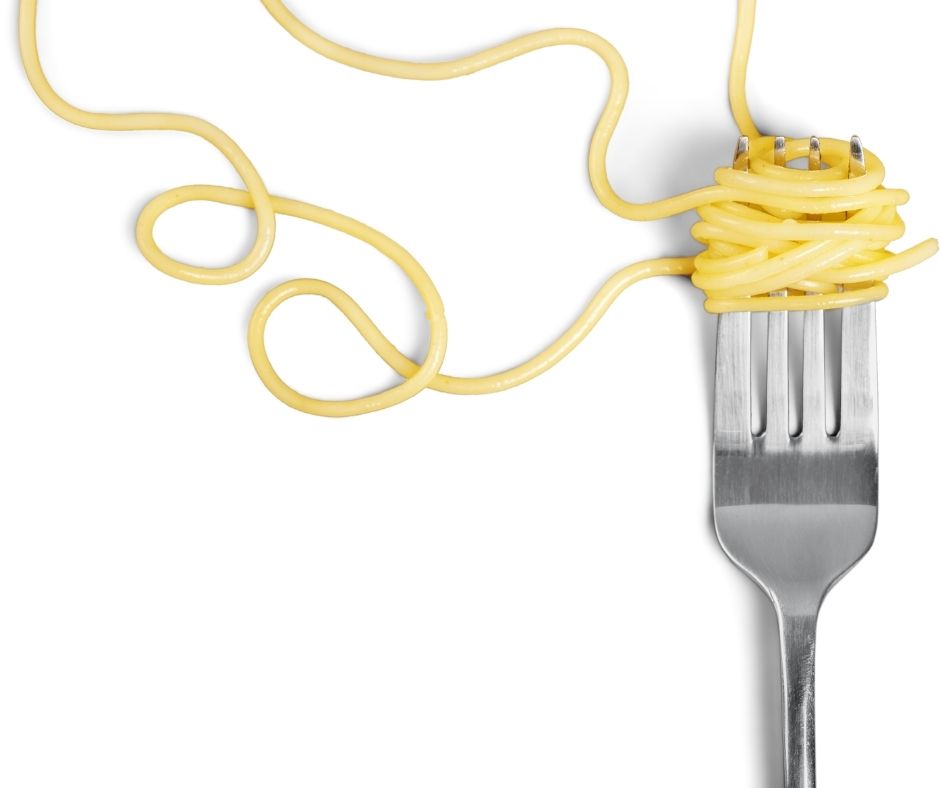
You probably bought a box of spaghetti, and since you cannot overcook one type of pasta, you also bought other types. As a result, you end up not touching some of the pasta containers after nearly two months.
Under normal circumstances, you wouldn’t have to worry much because pasta has a long shelf life if you store it appropriately. For example, harmful bacteria will not grow on dry pasta because it does not have moisture content. In this regard, you can consume pasta even after its expiration date, but it loses its flavor.
It is good to understand that the best date labels, such as expiration dates or sell-by dates, are usually based on quality, not safety. This is true apart from infant formula. Therefore, technically speaking, it is safe to eat dried pasta past its expiration date.
The expiration date on the majority of pasta boxes is around one to two years. However, you should carefully inspect any pasta that is past its “Used By” date before you cook. For example, suppose it has blatant texture changes or smells; it is no longer safe to eat.
You need to know how expired pasta looks to avoid consuming something harmful to your health. Read below on the signs you should be aware of.
Signs That Your Pasta is Past its Shelf Life
Usually, it is straightforward to tell whether your pasta is spoiled or not at first sight. The signs of spoilage are similar for fresh, dried, canned, and cooked products. The first step is to look at the package. The package’s condition is perfect; you should look at the content.
Here is what to look for:
- Taste– as stated earlier in this piece, when dry pasta expires, its taste worsens. Although its appearance might remain the same, the pasta becomes stale and tasteless. On the other hand, cooked pasta loses its natural flavor and becomes inedible after a few days.
- Smell– when fresh or cooked pasts spoils, it emits a terrible smell. This will be effortless for you to determine.
- Color– if your pasta has any discolorations and white spots on its surface, that’s a sign that something is wrong.
- Texture– your cooked pasta becomes slippery and sticky. This is what happens before molding.
- Mold– if you start seeing white clouds or black spots on your cooked pasta, those are molds growing. This usually happens if you have stored your pasta for more than five days. Dry pasta rarely exhibits these changes unless it is exposed to high humidity.
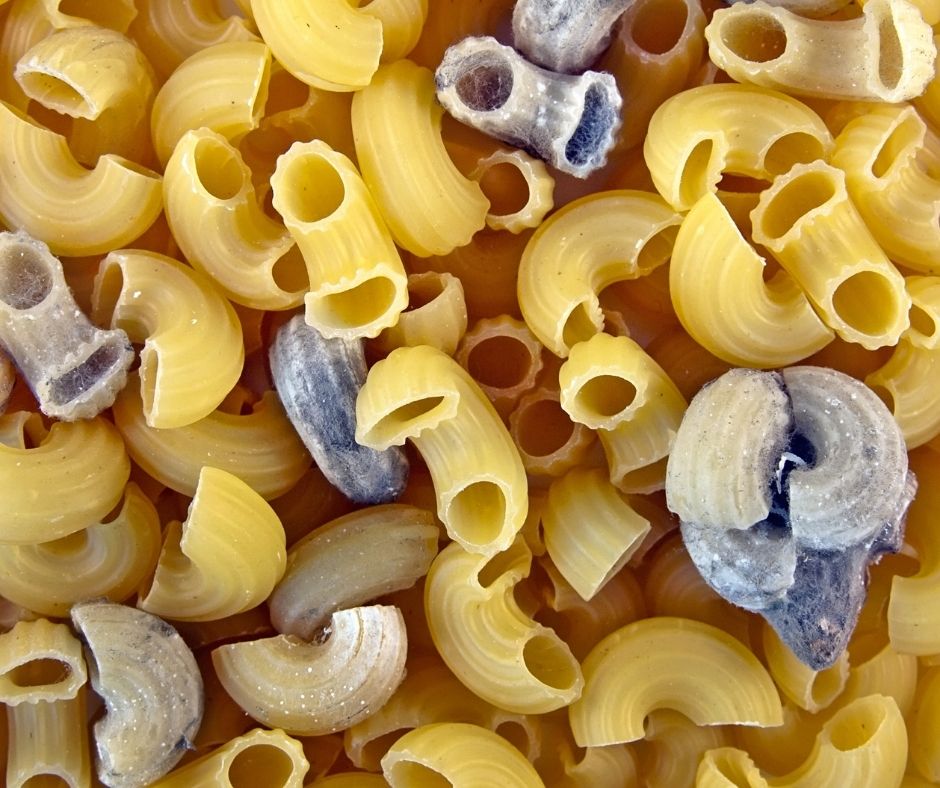
- Damaged can– if you love canned pasta, please check the condition of the can before you use the product. Avoid pasta from a leaking or seriously damaged can. You should also avoid rusted cans.
- Pantry bugs and worms– it is hard to spot changes on dry pasta because it rarely goes bad. Nevertheless, check the packaging for small holes and pantry bags reproducing in the bag. You should thoroughly inspect any packages you opened but have stayed for long before using the contents.
How Long Does Pasta Last?
How long your pasta lasts depends on multiple factors. For instance, dry pasta will most likely disintegrate instead of decaying. This depends on its date of production, storage temperature, ingredients, and package type.
In an ideal situation, you should store your pasta at 65F to 80F. You should also ensure that you store your pasta in as low humidity as possible because it is very absorbent.
For fresh pasta, you can store it in the fridge and eat it within a few days. On the other hand, pasta leftovers are fit for consumption within a week if you keep them in the refrigerator. But, if you store the leftovers in the freezer, they can last for up to eight months.
The table below breaks down how long different types of pasta last:
| Pasta Type | Pantry | Fridge | Freezer |
| Dry (unopened) | Up to one year | ||
| Dry (opened) | One year | ||
| Canned (unopened) | Six months | ||
| Canned (opened) | Up to four days | Up to two months | |
| Cooked (wheat) | Up to four days | Up to two months | |
| Cooked (bean, lentil, or pea) | Up to five days | Up to eight months | |
| Cooked( with sauce) | Up to five days | Up to eight months | |
| Fresh (Store-bought) | Up to three days | Up to six months | |
| Fresh (homemade) | Up to five days | Up to two months | |
| Tortellini | Up to five days | ||
| Gluten-free | Up to five days | ||
| Lasagna | Up to five days |
Pasta Expiration Dates Explained
Most pasta does not come with a strict expiration date. Nevertheless, here are some guidelines you can follow:
Cooked pasta
You can keep pasta leftovers for around five days. On the other hand, you can keep them in a freezer for approximately two months. Would you please ensure you use a freezer-safe container?
Fresh pasta
You should consume fresh pasta within two days of buying it if you keep it in the fridge. Alternatively, you can keep it in your freezer if you want to use it for up to two months. Please don’t store it in the pantry because it contains raw eggs.
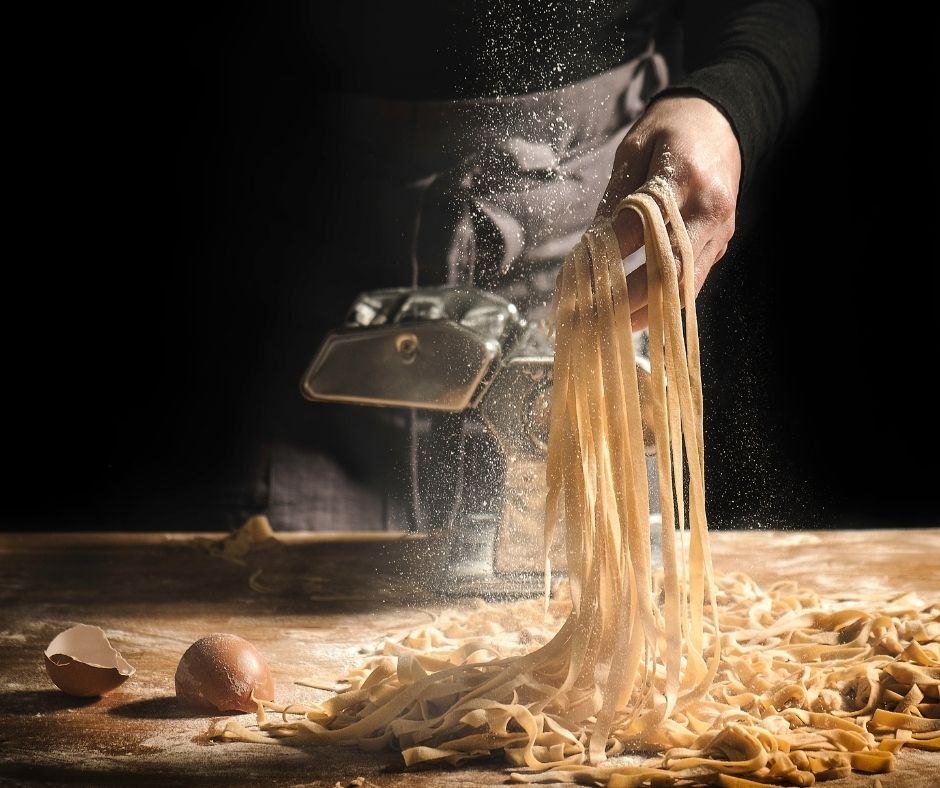
Dry pasta
Does dry pasta do bad? As mentioned earlier, dry pasta will not expire. However, its quality degrades over time. You can store unopened dry pasta in your pantry for up to two years. Opened dry pasta will be good for a year. Freezing dry pasta is useless as it won’t extend its shelf-life.
The Proud Italian’s Top Tips For Storing Pasta Longer
How to Store Dry Pasta
It is advisable to store dry pasta in a cool dark place to prolong its shelf-life. For example, your pantry or a dark cupboard is an excellent storage area for your store-bought box of spaghetti.
If you want to avoid wheat-eating pests, you can go the extra mile, remove them from their original packaging, and store them in an airtight container. Again, you can go for glass mason jars so that you can see what shapes you have in store.
How to Store Fresh Pasta
You should consume fresh pasta within few days of purchase. This tip applies to homemade pasta also. This way, you will not need special containers to store your fresh pasta. Instead, you can use an airtight container.
It is also advisable to keep your fresh pasta in the fridge until you want to use it. Then, if you’re going to store it in the freezer, wrap it tightly in a double layer of aluminum foil. This will help to prevent freezer burn. Alternatively, you can use a freezer-safe ziplock bag.
How to Store Cooked Pasta
Does cooked pasta go bad?
Yes! Therefore, store cooked pasta in an airtight container in your refrigerator. This tip only applies if you have any leftovers! The low temperatures will help prevent mold growth and reduce the risk of going bad.
Some Interesting Facts About Pasta
Did you know?
- Even though pasta is originally from Italy, many countries have their own version of the spaghetti noodle. For instance:
- China has Mein
- Japan has Udon
- The Philippines have Pancit
- Poland has Pierogi
- Germany has Spaetzle
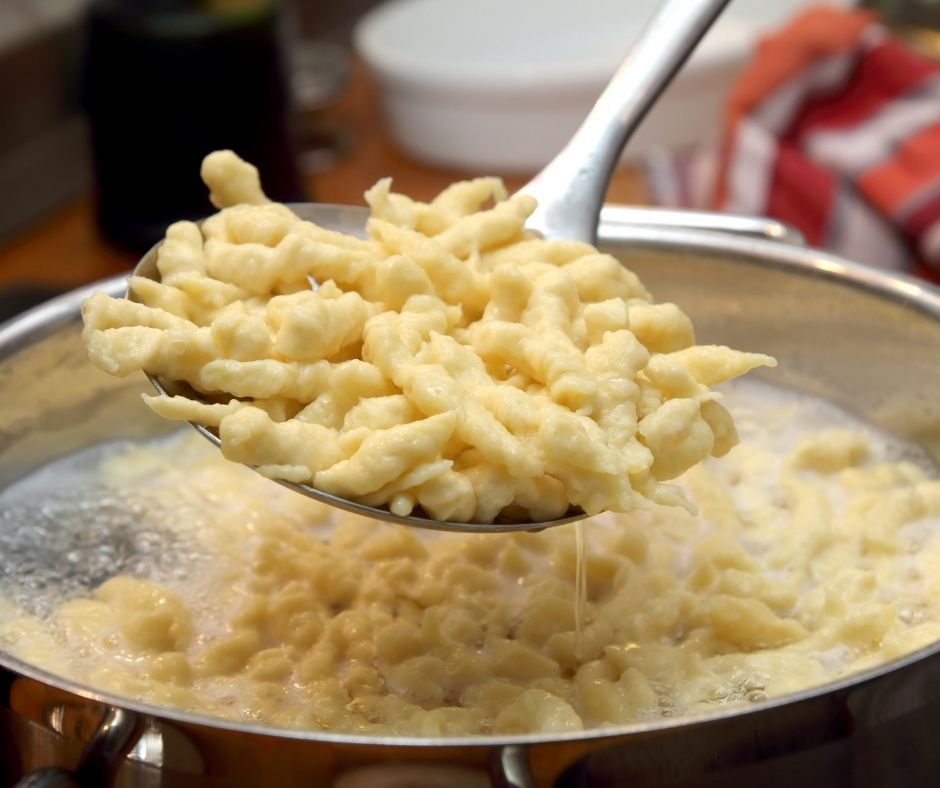
- Before the arrival of machines, pasta was kneaded on foot! Because pasta dough was so tough, workers used to walk over large batches of dough in the kneading and squeezing process. They say that a single batch would take “a whole day’s walking” to make!
- Al dente pasta keeps you full for longer. This is because al dente pasta usually takes longer to digest than overcooked pasta.
- There are around 350 shapes of pasta. But, on the other hand, you will find over 1000 names of pasta.
- The average Italian consumes around 60 pounds of pasta annually. If you are curious, the average American takes about 26 pounds of pasta in a year.
- In 1957 BBC aired a parody documentary that fooled people into thinking that spaghetti grew on trees in Switzerland. Some people bought the lie and were looking for a spaghetti bush to buy. Can you believe that!
How Long Can You Keep Cooked Pasta For?
It is advisable to store cooked or leftover pasta in the fridge at 40F. If you put it in an airtight container, it will stay for longer. How long you can keep your cooked pasta before it’s gone bad depends on several factors.
For example, if you store your cooked pasta in the freezer, it can last for up to two months. First, however, you must ensure you pack it appropriately, preferably in a resealable bag. You can keep it for longer under such conditions, but the taste and quality will decline.
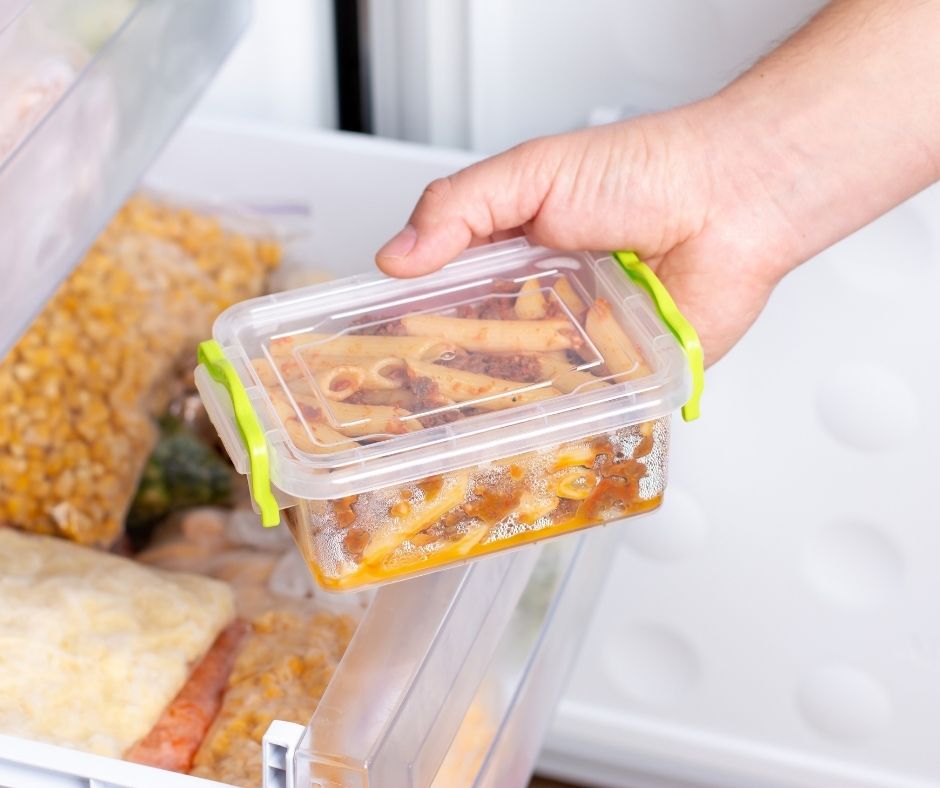
Moreover, ensure you cool down cooked pasta before storing it in the refrigerator or freezer. It is also advisable to toss it with olive oil to prevent condensation and sticking to the container. It also helps to prevent bacteria or mold growth.
Is it Possible to Freeze Pasta?
Well, even though it might sound strange, it is possible to freeze pasta. Truth be told, it is the best option to store cooked pasta, especially if it is homemade. To do this, put it in an airtight container, ensure it is closed well before placing it in the freezer.
You can also freeze-dry pasta even though it would be unnecessary. The best way to freeze-dry pasta is to place it in a freezer-safe container without removing it from the original packaging. The extra layer helps to protect the food from frost.
Other manufactures don’t recommend freezing dry pasta because it is highly absorbent and can easily pick up excess moisture. This will degrade its quality and reduce the taste.
It would be helpful to remember that freezing cooked pasta also decreases its quality over time. The degree of degradation depends on the sauce you added and other ingredients you used.
Can You Get Sick From Bad Pasta?
When does pasta go bad? You need to know the answer to this question because it is critical.
When you consume uncooked pasta, you may get Salmonella poisoning because it contains egg noodles made of raw eggs. How will you know you have contracted these bacteria? You can experience stomach upsets, diarrhea, and vomiting.
On the other hand, well-cooked pasta is healthy and fit for human consumption. This is because the bacteria cannot withstand the drying process.
You should be careful with old pasta because it could be contaminated and can give you foodborne illness. Typically, Bacillus cereus, a foodborne pathogen, usually grows in such food. These bacteria cause diarrhea, nausea, cramps, and vomiting.
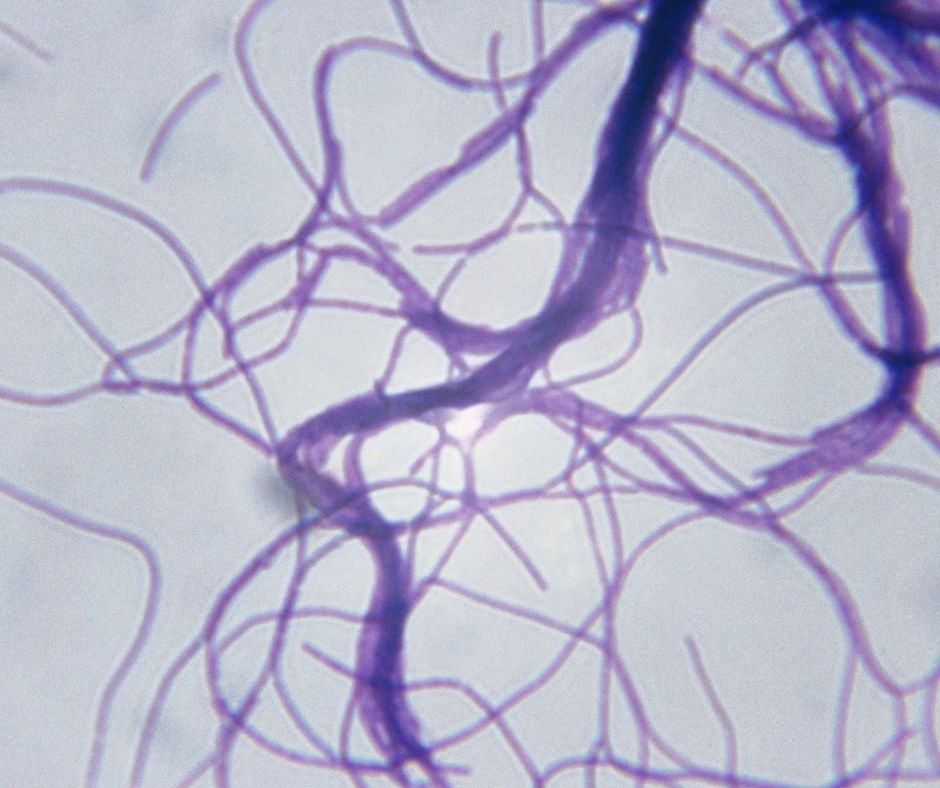
Food safety requires that you store your food as recommended. In this regard, if you incorrectly keep your old pasta, it can be harmful to your health. This is true for poorly stored pasta that contains eggs, meat, and dairy products.
Such pasta gets exposed to Clostridium, Listeria, and Campylobacter. Therefore, you must store this kind of pasta in the refrigerator at 40F.
In this regard, it is better to store your pasta properly. For example, ensure you store dry pasta away from bugs and worms and keep the cooked portions in the fridge. Moreover, even though dry pasta might look edible, its taste and quality decline after two years.

Community of passionate writers and content creators who share a love for Italian heritage, culture, travel, food, and the Italian-American community. Our mission is to celebrate Italy’s rich history and traditions and connect with others who share the same passion.

